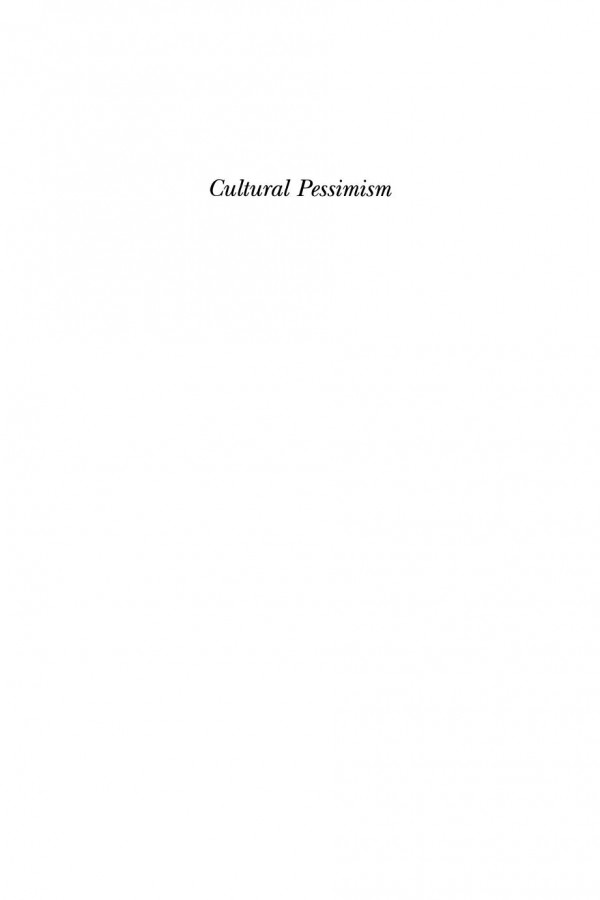

Most ebook files are in PDF format, so you can easily read them using various software such as Foxit Reader or directly on the Google Chrome browser.
Some ebook files are released by publishers in other formats such as .awz, .mobi, .epub, .fb2, etc. You may need to install specific software to read these formats on mobile/PC, such as Calibre.
Please read the tutorial at this link: https://ebookbell.com/faq
We offer FREE conversion to the popular formats you request; however, this may take some time. Therefore, right after payment, please email us, and we will try to provide the service as quickly as possible.
For some exceptional file formats or broken links (if any), please refrain from opening any disputes. Instead, email us first, and we will try to assist within a maximum of 6 hours.
EbookBell Team

4.0
86 reviewsCultural pessimism arises with the conviction that the culture of a nation, a civilisation or of humanity itself is in a process of irreversible decline. In an incisive and wide-ranging analysis, Cultural Pessimism: Narratives of Decline in the Postmodern World charts the growth of pessimism in the West during the last decades of the twentieth century.
Drawing on studies from within a very broad range of fields, which include ecology, human rights, military history, international relations, criminology, history of science, cultural criticism and political economy, the author shows how cultural pessimism in the postmodern world can be related to the cumulative effect of four key narratives of decline:
After a review of pessimism in other historical periods, each of these narratives is explored in depth. The book attempts to answer a number of questions: how are the narratives constituted and what are the conditions to which they refer? To what extent are those conditions historically unprecedented? To which cultures do the narratives relate? What values do they reflect? To what extent are the identified processes of decline seen as irreversible? Concluding that cultural pessimism is as much a matter of psychological and biological disposition as of intellectual judgement, Oliver Bennett's challenging book offers valuable new insights into how we view the prospects of the twenty-first century.
Key Features